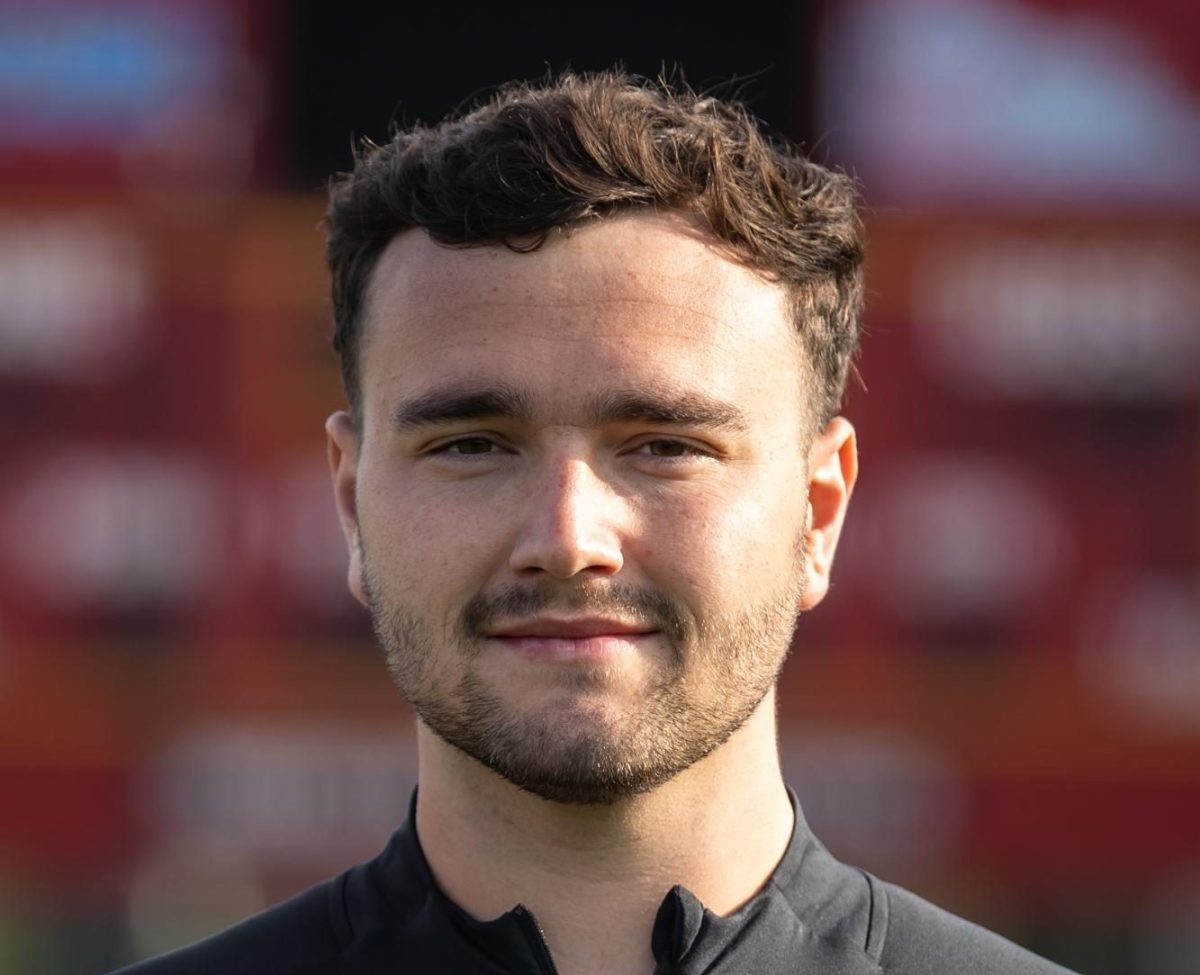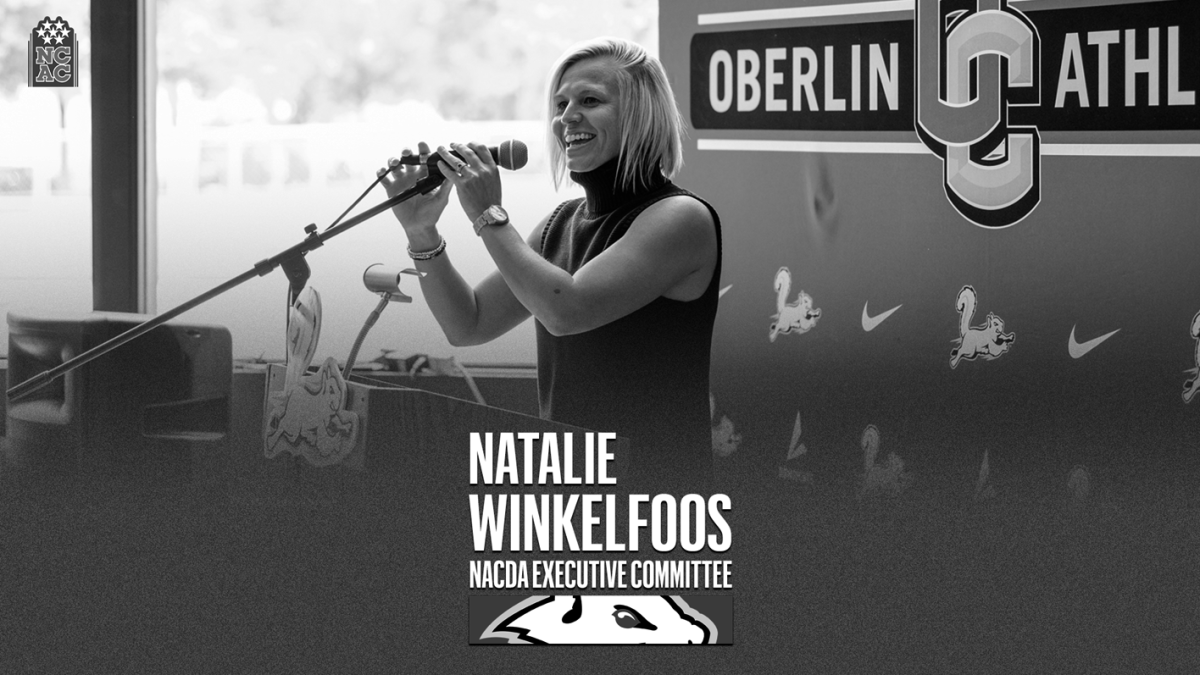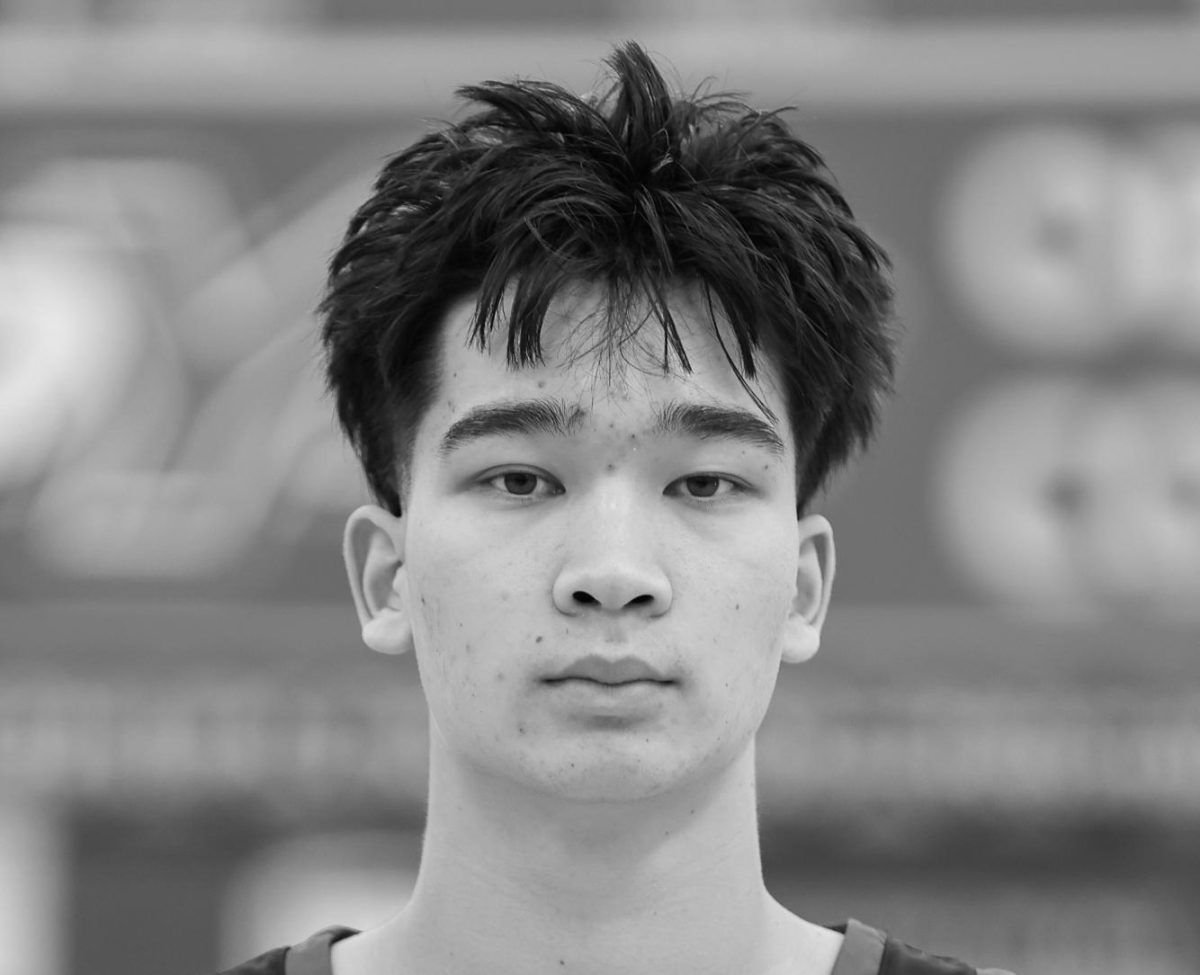Fourth-year Ethan Price is an assistant defensive line coach for the football team. He played football his first two years at the College, but transitioned into a coaching position after injuries forced him to step away from the game. He is on the pre-medicine track, majoring in Biochemistry with a minor in Anthropology.
This interview has been edited for length and clarity.
When did your football journey begin?
It started when I was in eighth grade. I had done martial arts and baseball my entire life, and transitioning into high school, I wanted to try something a little bit different. A few of my friends had played football on a feeder team for the high school I was going to, and they encouraged me to try out. I really wasn’t all that keen on playing football, but I went out, did a few camps for the high school that I intended to go to, and really fell in love with it.
Was there anything else that drew you specifically to football?
Growing up, my parents got divorced. There was a lot of built-up emotion through those experiences. I think football, in a lot of ways, helped me get my mind off that situation and the thoughts and emotions involved. Football was a release from that. Doing martial arts, my parents were always in the karate studio with me. I couldn’t really escape my parents. Football was the first place I could go where my parents would drop me off because we weren’t allowed to have parents at practice. I completely got away and zoned out from everything. That might have been an even bigger motivation than my friends encouraging me.
What injuries forced you to step away from the game?
I had two concussions in high school, and I had one concussion my second year here. The one in my second year here took a lot longer to go away. Ultimately, that’s what pulled me from the game — that experience and the cognitive impairment that came from it. I had to go see a neurologist, had a few discussions with him, and in the end, just decided it was best to step away.
When you decided to walk away, what led you to still remain with the program?
I don’t think it’s any secret that our football program has struggled throughout its history. Originally, when I had decided to stop playing, I wasn’t really set on coaching. I just wanted to help out and finish that season in any way that I could. I finished out the season and had to sit down with myself and think about what was ultimately important to me. I love the guys, and I think it’s easy to leave a situation that’s difficult, when we’re not succeeding and things are hard. I’ve always found pride in myself not quitting things. I’ve always felt I’m the type of person that sees things through. That was a big motivation. I wanted to finish out my four years for myself, and for all the guys who are still here. I really do love the guys, and I wanted to make sure that I was there in some capacity and didn’t abandon them. Deciding to stop playing wasn’t a decision made around the team or around football in and of itself; it was just my health.
On the athletics page, it says you are a student manager. Could you expand on what that role looks like?
Student manager, I feel like that’s the wrong title. I’m actually coaching. At 5:30 in the morning, I’m out there with all the guys. I specifically coach the defensive line. When we break up into position groups, I help lead a lot of the meetings and make comments on film. When we split up, I will work with specific groups depending on how the day goes. I’ll have my small group, and then when we go to team periods of practice [the portion of practice that simulates real game scenarios], I’m watching them and I signal the plays in for the defense. Outside of that, I occasionally help out with scouting reports and film breakdowns leading up to games.
How has your appreciation for football changed now that you’re coaching and no longer playing?
It’s definitely a different perspective. I think as a player, you’re so focused on what your goal is, your position, and your job. As a coach, I think I’ve looked at things from more of a holistic, broader perspective. I’m looking at how the guys that I’m coaching are helping out the guys behind them. As a defensive lineman, if you don’t do your job, if you’re not eating up a block on a specific play, the linebacker isn’t going to be able to do his job and make a tackle. Which was something that I never really thought about in my career. Coaching has definitely opened up my eyes to different layers of the game.
What does the game of football represent for you?
There are two main themes that I’ve come across, and they’re kind of nuanced, over my time playing and coaching. The biggest thing is the brotherhood. You’re waking up at 5:30 in the morning for practice; no one really wants to get up that early. You have all these guys who are doing it with you. You build a very special relationship. Football, at the end of the day, is a pretty violent and brutal game, and you have to trust that the other guy lined up next to you is going to have your back no matter what. I think that brotherhood is the biggest aspect; you really get to know the guys, love the guys, and trust the guys that you’re around. The other thing is adversity. If there’s one thing that football has taught me since being here, it’s that things aren’t always going to be easy. Like I said, historically we haven’t always done the best. That’s something we’re trying to change. Even at the college level, balancing academics and balancing your sport is definitely hard. There’s a lot of struggles that come with it. Waking up at 5:30 in the morning, having practice until 9:30 a.m., and then having to go to bed early to do the same thing, it’s not fun stuff. But you learn to push through, you learn to survive, and you learn to have fun doing it.












